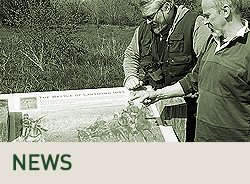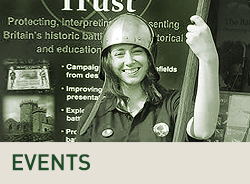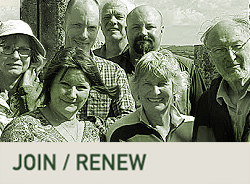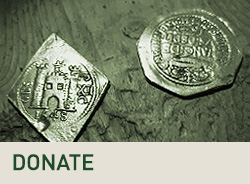The Official Account
The official account of the campaign from Feversham’s army:
‘And on Sunday morning, being the 5th of July, marcht from Somerton along Sedgmoore towards Bridgwater, with a designe to encamp at Midlesey, but Collonell Ramsey who was sent before to set out the ground, found a more convenient place by Weston within 3 myles of Bridgwater, where my Lord Feversham, after he viewed the ground, ordered our foot to encamp, behind a convenient ditch that runs from Weston into the Moor, which they did in one lyne, leaving room between their tents and the ditch to draw up.
On the left of our foot were our canon, fronting the great road that comes from Bridgwater to Weston, and in the village which was covered by our Camp, were our Horse and Dragoons quartered.
My Lord Feversham ... having notice from stragling people that the Duke of Monmouth had drawne his forces out of Bridgwater into a meadow that joyned to the towne, my Lord sent away Collonell Oglethorpe with a party of horse to the top of a hill on the road from Bridgwater to Bristoll, fearing they would in the night pass that way, and in the evening gave orders for 100 horse and 50 Dragoones to be posted on the right of our camp against a way that goes round by Chedzy towards Bridgwater and that all the rest of the horse in the village should be ready saddled and bridled.
About 11 at night my Lord Feversham rid through our camp visiting the centrys together with the grand and out guards, which were posted as followeth ‑
On the great road that comes from Bridgwater to Weston was our grand‑guard of 40 horse, under the command of Capt. Upcott, before him centryes, and in the Lane between them and them and Bridgwater, patrolls. To the right of our camp and against the way from Bridgwater round by Chedzy was a guard of 100 horse and 50 dragoons, commanded by Major Compton, before them an advanct party, from them centrys, and between them on the way towards Bridgwater, patrolls. Between those two guards came a middle but narrow way from Bridgwater into the Moor, which was guarded by 50 musqueteers, in Pitzy‑pound, wal'd man high, to which our horse on the left were ordered to retreat in case of necessity.
... About a quarter after one came Sir Hugh Middleton with one of Collonell Oglethorpe's party to let my Lord know that he could not perceive the least motion of the enemy, and therefore resolved to march directly towards the towne of Bridgwater, untill he mett with some account of them. In the mean while the Rebells by the help of the night marcht undiscovered about a myle up Bristoll Road, turned off on their right hand and came round by Chedzy towards the Moor where we were encamped, so that Collonell Oglethorpe in his march towards Bridgwater fell behind them and got no intelligence of them, but from the centrys they had left in the towne, from whome they understood their army was marcht, which made Collonell Oglethorp take the next and middle way to the Moor.
Our patrols in the meanwhile apprehending the approach of the enemie's vanguard immediately gave notice to our advanct party, and they to our guard of 150 horse under the command of Sir Francis Compton, from whome both our foot that were encampt and the horse in the village took the allarum. My Lord Feversham himselfe hearing the first sound of the trumpet rid directly to the camp, where he found the foot at their armes in a lyne by the Ditch side over which he commanded not a man to stir without order.
By this time Sir Francis Compton and the Enemy's vanguard met, who chancelled one another, and upon a carbine of ours that went off by accident, the Rebells fired, who upon Sir Francis Compton's fire, returned immediatly to their main body. Sir Francis being shot in the breast, Capt. Sands commanded, who soon met with a body of the enemy's horse marching towards him, which Capt. Sands tooke at first for our militia, but finding his mistake immediatly charged and broke them, and then retreated with his hors towards our camp, himselfe and divers of his men being wounded.
How neare the main body of their horse, commanded by my Lord Grey (who passt first into the Moor) came to our camp we know not, nor can certainly learne, it being darke. But a party of their horse did come up, and one of them commanded Capt. Berkly to come over the Ditch to the Generall, whome he found after some discourse to belong to the enemy, and fired. This fire from our foot, we conclude, with the repulse given them by Sir Francis Compton and Capt. Sands, broak and disordered all their horse, because we perceived them afterwards on the left of their foot in great confusion, endeavouring to forme, but could not, while two Batalions of their foot (before whom they were designed to charge), came up within halfe musquet shot of our camp, but they having past through a defile where but few could go abreast, were forced to halt a considerable tyme, to draw up themselves and their other three batalions, with their three peces of canon in order.
My Lord Feversham upon the first approach of their foot immediately drew Capt. Parker, Capt. Vaughan, Capt. Atherley, and Collonell Villers troops of horse and horse granadeers on the right of the eneemies flank, and returning to our camp met Collonell Oglethorp with his party and our out guards on that side that he had brought in.
These my Lord Feversham marcht behind our foot to the right of our camp, where he found Collonell Orp at the head of a party of our horse, where with Capt. Littleton's troop, Capt. Sande's, Colonell Windham's, and two more troops of my Lord Oxford's, commanded by Lieut. Selby and [Lieut. William] Winde, he drew upp in a body and marcht over the ditch on the left of the enemies forces. Collonell Oglethorp passing over the ditch a little more to the right, mett with a considerable number of the enemyes horse, whom he pusht into the mire and routed (they being in great disorder and confusion were never able to make any great resistance). My Lord Feversham then commanded Colonell Oglethorp to wheele and charge with the rest of our horse on the enemy's flank, giving directions to them all to charge what ere they found before them.
In the mean tyme my Lord Churchill having the command of the foot, seeing every man at his post doing his duty, commanded one troop of his dragoons to march over the ditch between our horse on the left, and our camp, the other two troops being drawne up on the right of the foot under the command of my Lord Cornbury.
On the right of the Scotch forces were 3 peeces of our cannon brought up and planted, which did great execution, the rest of our cannon firing through the intervalls of our own troops, our foot keeping their fire till they had received the enemyes, whose great and small shot flew thickest among my Lord Dumbarton's bataillon, and first Battaillon of Guards commanded by Lieut. Collonell Douglas and the Duke of Grafton, on whose left were the other two batailons of Guards, Colonel Kirk's batailon, and Capt. Trelany's men, commanded by Major Eaton, Collonell Sackvill, Colonell Kirk, and Lieut. Collonell Churchill.
My Lord Feversham returning to our foot ordered Collonell Sacvill to draw his men to the right of the Scotch forces, intending to bring Collonell Kirke's and Trelany's men in their roome. But seeing my Lord Churchill marching with Collonell Kirk's and Trelany's men towards him, he made Collonell Sackvill hault, and returned to the horse, leaving my Lord Churchill to march them to the right.
The Rebells by this tyme being very uneasie, our foot and canon firing on their front while our horse charged them on both sides, my Lord Feversham commanded all the foot to march over the ditch directly to the enemy, upon which two of their batailons which had stood hitherto very well, gave ground in a body, and soon after fled, Capt. Littleton having beaten them from their cannon, which our foot perceiving ran eagerly to possesse themselves of it, while the Rebells run after the rest of their foot, that had been scowring away for some tyme in the rear in great disorder and confusion, which only our troops next them were sencible off, and durst not pursue them untill 'twas light for fear of being knockt on the head by our owne men, elce but few of them had escaped us, for most of them who did escape were within an hour so disperst that you could not se anywhere ten of their men living.
Some straglers there were which our militia pickt up, while my Lord Feversham and my Lord Churchill marcht into Bridgwater, with some horse and dragoons and 500 foot, whom my Lord left in Bridgwater under the command of Collonell Kirk after my Lord Feversham had sent away Collonell Oglethorp to give his Majesty an account of this happie and great victory, which did not consist in the number slain and taken, (though there were about 14 or 15 hundred kill'd, 200 prisoners, and 22 colours taken on the place) but in the total rout and defeate of above 7,000 rebells by the Kings forces which consisted but of 700 horse and 1,900 foot. The militia being quartered at Midlesey, 'twas impossible for them to come to our assistance, though they came in good order and made great hast.’





